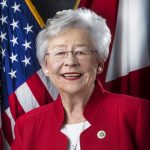
In recent days, Alabama Governor Kay Ivey has been the subject of increasing pressure to issue a “shelter in place” order — requiring Alabamians to stay home because of COVID-19. Today, she issued an order that claims to mandate “shelter in place.” Yet, the exceptions within that order are so enormous, they will have very little impact on Alabama employers. I also believe the order will do very little to change the behavior of ordinary people. Here’s a link to the order: Shelter In Place Order
The order beings quite convincingly: “Effective Saturday, April 4, 2020, at 5:00 P.M., every person is ordered to stay at his or her place of residence except as necessary to perform any of the following ‘essential activities’:” The key words here are “except” and “essential activities.” The order goes on to label almost every activity in Alabama as “essential,” including:
- Obtaining necessary supplies — defined as anything necessary for the “routine operation of a home or residence.”
- Providing necessary services — Anything necessary to preserve a person or pet’s health and safety.
- Attending religious services — so long as you can maintain a consistent six-foot distance.
- Taking care of others — defined to include taking care of a “pet in another household.”
- To work. Obviously, this is the important one for this blog. People are allowed to leave home to perform work at “essential businesses and operations.” As detailed below, virtually all businesses are considered “essential.”
- To engage in outdoor activity. After all, it’s Turkey Season.
- To seek shelter.
- To travel as required by law
- To see family members. Defined as “to visit the residence of other persons who are related to him or her.”
OK. People can report to work at “essential businesses and operations.” Well, what are those? You name it, and you probably work for an “essential” business. Each of the following categories of business has laundry-list of specific occupations called-out in the order. If you have any question, check the order — you’re probably working for an “essential” business.
- Government operations. Basically, any government agency and “workers and vendors that support” those agencies.
- Health-care providers and caregivers. Again, this category is as broad as possible, including “medical practices” and “other ancillary healthcare services.”
- Infrastructure operations. Utilities, wireless communication, dams, airports — those make sense. But, don’t forget car sales, Uber and Lyft drivers and RV Parks.
- Manufacturing facilities. Any company that produces any “products used by any other Essential Business or Operation.”
- Agricultural operations and farms.
- Essential retailers. Almost anybody but clothes stores. Warehouse clubs, liquor stores, convenience stores, guns stores and boat supply and repair stores are essential.
- Restaurants and bars. This is the only category with absolutely no specification.
- Essential personal services. This one is a little vague. It includes home repair, warehouses, animal shelters, laundromats, dry cleaners and “providers of business services.”
- Financial services. Banks and anybody else that provides “services related to financial markers” with a special shout out to “payday lenders.”
- Professional services. If you’re reading this blog, you know lawyers are essential. So are accountants, insurance services and real estate services.
- Providers of basic necessities to economically disadvantaged populations.
- Construction and construction-related services. Also broad, to include exterminators, janitorial services, painting, movers and “other related construction firms and professionals providing essential infrastructure.”
- Essential public services. This is any service “necessary to maintain the safety, sanitation and essential operations of residences and essential businesses and essential operations ….”
- Military or defense operations. My government contracting clients in Huntsville are essential. This includes any companies or subcontractors supporting the Department of Defense.
- Essential services or product providers. This includes “any vendors that provide services or products.”
- Religious entities.
- Federally-designated critical infrastructure. Just in case Alabama’s list isn’t comprehensive enough, Governor Ivey bootstrapped everything the federal government deems “essential.” Here’s a link to that list: “Critical Infrastructure Workers”
- Other state-designated essential businesses and operations. Any business deemed essential by the Alabama Department of Public Health or the Alabama Emergency Management Agency.
- Support operations for essential business and operations. This is the catch-all. It covers any businesses that are “employees, contractors, agents, suppliers, or vendors” of another essential business or operation.
Just in case law enforcement officials stop an employee traveling to or from an essential business, this order allows businesses to supply workers with “credentials … verifying their status as an employee of an essential business or operation.” I have drafted these credentials for several of my clients with offices in other states that are also subject to “shelter in place” orders.
Essential business are supposed to “take all reasonable steps” for employees and customers to maintain a consistent six-foot distance and to avoid gatherings of 10 or more people.
The only other big change in this “shelter in place” order involves “essential retailers.” They are only allowed to permit entry of customers so that occupancy of their buildings is limited to “50 percent of the normal occupancy load as determined by the fire marshal.” Their employees must not “knowingly allow” patrons to congregate within six feet of each other. Finally, they must take “reasonable steps to comply” with guidelines on sanitation from the Centers for Disease Control and the Alabama Department of Public Health.
I truly hope that this “shelter in place” order has some impact on slowing the spread of COVID-19. In my opinion, however, the exceptions in the order are so broad, that they impose virtually no further restrictions from the “social distancing” restrictions that were previously imposed on Alabamians. Here’s a link to my first blog post discussing Governor Ivey’s first “social distancing” order: Social Distancing Order